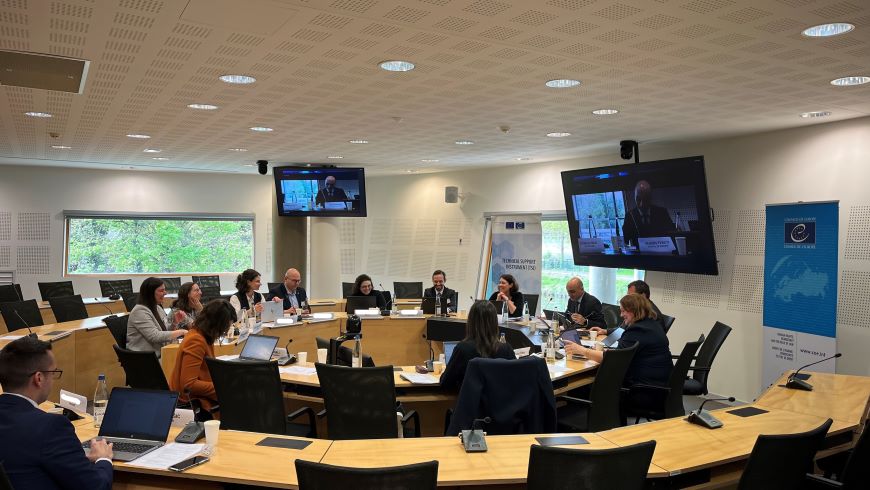The Council of Europe’s Economic Crime and Cooperation Division (ECCD) is currently supporting Cyprus, Czech Republic, Hungary, Lithuania, Malta, Slovenia, Spain, and indirectly all other EU Member States, in the implementation of the EU sanctions regime, with a view of strengthening cooperation between relevant authorities to ensure the timely access and exchange of relevant information on designated legal persons and entities, both at national and international level.
As part of the efforts aiming to support the National Competent Authorities (NCAs) in implementing sanctions adopted by the European Union, the ECCD conducted comparative analysis of the legal framework, national institutional setup and cooperation procedures, as well as of the organisation, powers and resources of EU Member States’ NCAs. The comparative analysis was presented in the workshop “Mapping of national competent authorities (NCAs) legal framework, institutional setup and cooperation procedures” which took place in Strasbourg, France, on 8-9 April 2024.
The workshop gathered participants of NCAs with a role in implementing the EU sanctions from 17 EU Member States, including Austria, Croatia, Czechia, Cyprus, Finland, France, Greece, Hungary, Italy, Lithuania, Latvia, Luxembourg, Malta, the Netherlands, Portugal, Slovenia and Spain, representatives of DG REFORM and DG FISMA of the European Commission, as well as the Council of Europe experts. The participants used this opportunity to share experience with their peers and the Council of Europe experts, as well as to compare different practices in sanctions implementation from diverse implementation models across the EU Member States. The exchanges reflected the practical challenges for NCAs, focusing on the effective exchange of information as well as in securing timely freezing of assets. As some EU countries are currently undergoing legislative and policy changes to enhance their domestic implementation mechanisms, the detailed presentations of national case studies to illustrate best practices were particularly relevant and useful for the purpose of informing potential future reforms, to achieve a more harmonized and effective implementation approach across the European Union.
The event was organised within the framework of the Technical Support Instrument initiative “Effective implementation of the sanctions regime and enhanced cross-border cooperation in EU Member States”, co-funded by the European Commission’s Directorate General for Structural Reform Support (DG REFORM) and the Council of Europe and implemented by the Council of Europe.
TSI sanctions - Newsroom
Workshop “Mapping of national competent authorities (NCAs) legal framework, institutional setup and cooperation procedures”

Strasbourg, France
8-9 April 2024
- Diminuer la taille du texte
- Augmenter la taille du texte
- Imprimer la page


